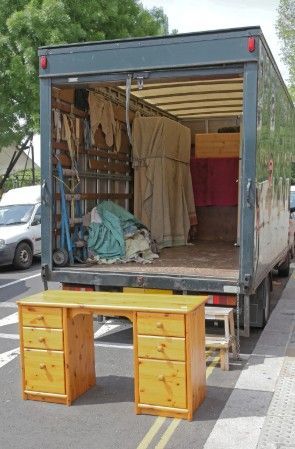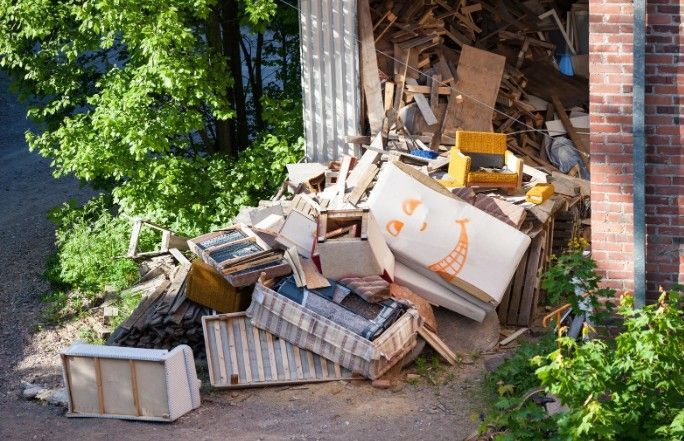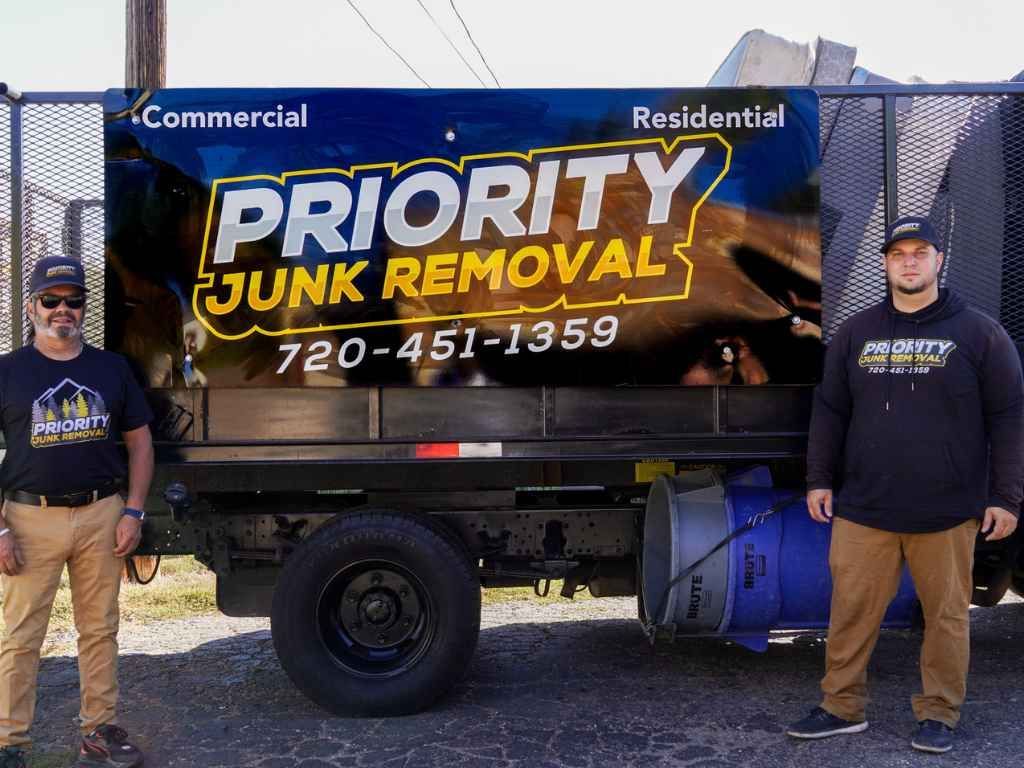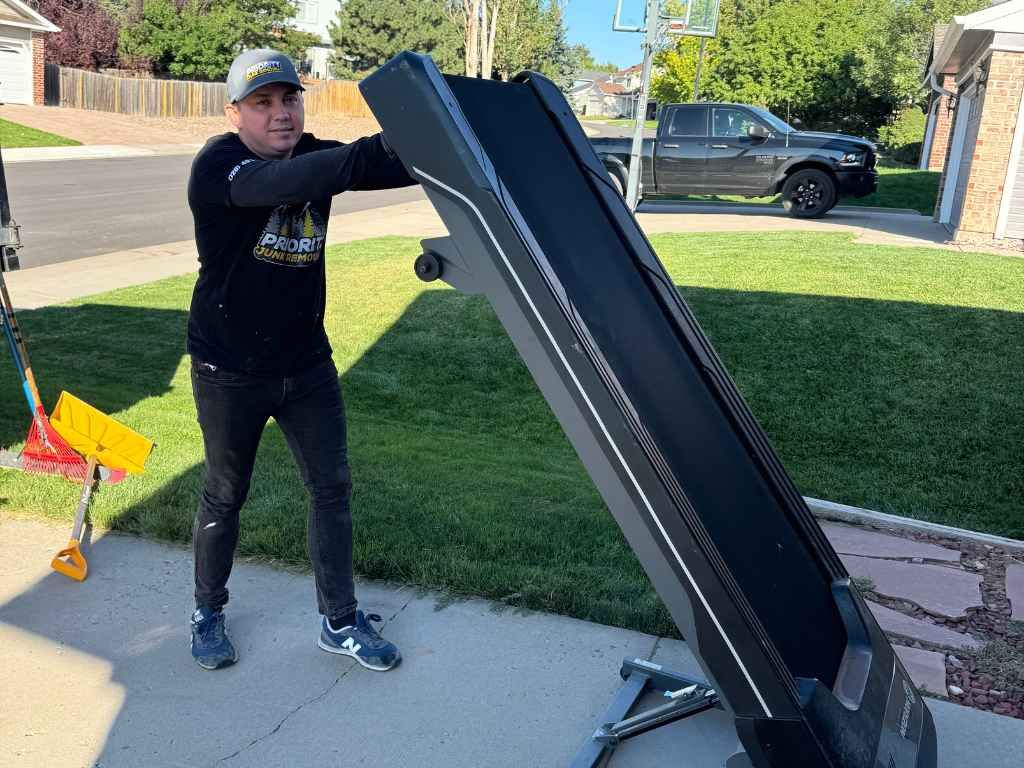How to Safely Remove Unwanted Office Equipment
Getting rid of old office equipment might seem easy—just haul it to the dumpster, right? Not so fast. Office equipment like computers, printers, and copiers can’t just be tossed out with regular trash. Many of these items contain sensitive data, hazardous materials, and recyclable components that require careful handling. If you don’t dispose of them properly, you could face data breaches, environmental damage, and even legal issues. So, how do you remove unwanted office equipment safely while keeping things eco-friendly and secure? Let’s break it down step by step.
Risks of Improper Office Equipment Disposal
Office equipment isn’t just bulky; it’s often loaded with materials that can wreak havoc on the environment if not handled properly. Electronics like computers, printers, and monitors contain toxic metals such as lead, mercury, and cadmium. When these materials end up in landfills, they can leach into the soil and contaminate the groundwater, posing serious health risks to nearby communities and wildlife. Over time, these toxins accumulate in the ecosystem, leading to long-term environmental damage and even entering the food chain.
E-waste also contributes to air pollution when incinerated, releasing harmful chemicals into the atmosphere. Proper recycling and disposal of office equipment prevent these pollutants from causing irreversible damage. Many components can be reclaimed and repurposed, reducing the need for new raw materials and cutting down on mining and manufacturing pollution. Choosing responsible disposal methods helps keep the planet healthier while minimizing your business’s environmental footprint.
Types of Office Equipment That Require Special Disposal

Not all office equipment is created equal when it comes to disposal. Electronics are the trickiest due to their hazardous components and data storage capabilities. Here are some of the most common items that need special attention:
- Computers and Laptops: Computers and laptops are packed with sensitive data and complex components, making disposal tricky. They often contain lithium batteries, heavy metals like lead and cadmium, and circuit boards that can leach toxins into the environment if not properly recycled. Wiping data before disposal is essential to protect sensitive information.
- Printers and Copiers: Printers and copiers are more complicated to dispose of than they seem. They contain ink cartridges and toner, which can leak harmful chemicals if discarded improperly. The internal components, like circuit boards and rollers, may hold heavy metals or plastic parts that need specialized recycling. Donating working models to schools or nonprofits can give them a second life while reducing waste.
- Phones and Communication Devices: Phones and communication devices are small but surprisingly complex. Old office phones and smartphones often store sensitive company data, making secure data wiping essential before disposal. The lithium batteries inside can pose a fire hazard if damaged or improperly handled. Components like rare earth metals, gold, and copper can be extracted and reused.
- Office Furniture: Office furniture may not seem hazardous, but it’s bulky and hard to dispose of. Desks, chairs, and filing cabinets can overwhelm landfills, taking up valuable space. However, many items are still in good condition and can be donated to charities, schools, or community centers. Metal and wood components can often be recycled, reducing the environmental impact.
- Monitors and Screens: Monitors and screens, especially older models, contain hazardous materials that need careful handling. Cathode ray tube (CRT) monitors contain lead and other heavy metals, which can contaminate soil and water if dumped in landfills. Flat screens may have mercury and rare earth elements that require specialized recycling.
Why Proper Disposal Matters
Proper disposal of office equipment goes beyond simply clearing out old gear—it’s about safeguarding your business, the environment, and your public image. When office equipment is discarded improperly, businesses can face serious consequences, including hefty fines, environmental damage, and a loss of customer confidence. Data breaches resulting from improperly discarded equipment can expose sensitive information, leading to legal action and reputational harm. On the other hand, responsible disposal provides multiple benefits.
It helps businesses stay compliant with environmental regulations, reduces the company’s overall carbon footprint, and reflects positively on corporate responsibility efforts. Donating old equipment to nonprofits or schools can not only give the equipment a second life but also provide financial benefits through tax breaks. Additionally, many disposal services can certify that your equipment has been properly recycled or destroyed, giving you peace of mind that your business is operating ethically and sustainably. Responsible disposal isn’t just good for business—it’s essential for long-term success.
How to Safely Remove Office Equipment
The key to safe office equipment removal is a combination of planning, security measures, and working with the right professionals. Here’s how to get it done right:
Start with Data Security
Before you even think about hauling out old computers and phones, make sure all data is wiped clean. A factory reset isn’t enough. Use data destruction software to overwrite the hard drive multiple times, making it virtually impossible to recover data. If you’re getting rid of physical documents, invest in a heavy-duty shredder to keep sensitive information out of the wrong hands.
Separate Recyclables from Hazardous Waste
Electronics often contain recyclable components like copper, aluminum, and plastic. Separating these materials makes recycling easier and ensures fewer materials end up in a landfill. Hazardous materials like batteries and fluorescent screens need to be handled separately to avoid contamination.
Work with a Licensed Junk Removal Company
Disposing of office equipment isn’t a DIY job. A licensed junk removal company knows how to handle sensitive electronics, furniture, and hazardous waste safely. They’ll also have access to specialized recycling facilities and know the regulations surrounding proper disposal. This ensures you stay compliant with local and federal laws while minimizing your environmental impact.
Donate What You Can
Just because you’re done with your office equipment doesn’t mean it’s worthless. Nonprofits, schools, and community centers are often in need of working computers, phones, and furniture. Donating these items gives them a second life and reduces overall waste.
Schedule a Professional Pick-Up
Once you’ve separated your items and ensured they’re secure, it’s time to schedule a pick-up. Professional junk removal companies can handle the heavy lifting and ensure everything gets disposed of or recycled properly. They’ll also provide documentation if needed, which can help with compliance and record-keeping.
The Environmental Impact of Office Equipment Waste
The environmental toll of improperly discarded office equipment is staggering. Every year, over 50 million tons of electronic waste (e-waste) are generated globally, and much of it ends up in landfills where it leaches harmful chemicals into the soil and water. Electronics contain hazardous materials like lead, mercury, and cadmium, which can take hundreds of years to break down. As they degrade, these toxic substances pollute ecosystems, harm wildlife, and even contaminate the food chain.
In addition to the environmental damage, improper disposal wastes valuable materials. Office equipment often contains precious metals like gold, copper, and silver that can be recovered and reused in new products through recycling. By properly disposing of office equipment, businesses contribute to a more sustainable future. Recycling reduces the need for mining raw materials, lowers greenhouse gas emissions, and minimizes the overall environmental footprint of manufacturing and disposal.
The Legal Side of Office Equipment Disposal
Businesses are held to strict standards when it comes to disposing of office equipment, especially electronic waste. Improper disposal can result in hefty fines and legal consequences. Many electronics contain hazardous materials, such as batteries and heavy metals, which are subject to strict environmental regulations. Disposing of these items in a landfill or sending them to an uncertified facility can violate local, state, and federal laws.
Additionally, office equipment like computers, printers, and phones often store sensitive business and customer information. If data isn’t properly erased before disposal, it can lead to breaches, identity theft, and lawsuits. The financial and reputational damage from a data breach can be devastating, making secure disposal a top priority.
Challenges in Office Equipment Disposal
Disposing of office equipment presents several logistical and operational challenges. Office equipment is often bulky, heavy, and difficult to move, requiring specialized handling and transport. Additionally, businesses need to ensure that data stored on hard drives, printers, and other electronic devices is completely erased to avoid security risks. Some equipment may contain hazardous materials that require proper disposal methods to avoid environmental harm.
Coordinating the disposal of large quantities of equipment can also be disruptive to daily business operations. Hiring a professional removal company simplifies the process. Experienced disposal teams have the tools and knowledge to handle heavy equipment, safely erase data, and dispose of materials in an environmentally friendly manner. They can also provide certification of secure disposal, giving businesses peace of mind that they’re complying with legal and environmental standards.
How to Keep Future Office Equipment Disposal Simple
Disposing of office equipment doesn’t have to be a headache every time. Keep things simple by implementing a few best practices:
- Keep an inventory of your office equipment, including purchase dates and expected lifespans.
- Set up a secure disposal station in your office for electronics, paper, and other recyclable materials.
- Work with a licensed removal company regularly to stay on top of clutter and avoid last-minute disposal panic.
Conclusion
Removing unwanted office equipment isn’t just about clearing space—it’s about protecting your business, the environment, and your reputation. Working with a professional junk removal company ensures that your old computers, printers, and office furniture are handled responsibly, recycled properly, and disposed of securely. For fast, efficient, and eco-friendly office equipment removal, contact Priority Junk Removal. Located at 6091 South Spotswood Street, Littleton, Colorado 80120, they handle everything from secure data destruction to responsible recycling. Call 720-451-1359 or email priorityjunkremoval@gmail.com to schedule your office equipment removal today.











